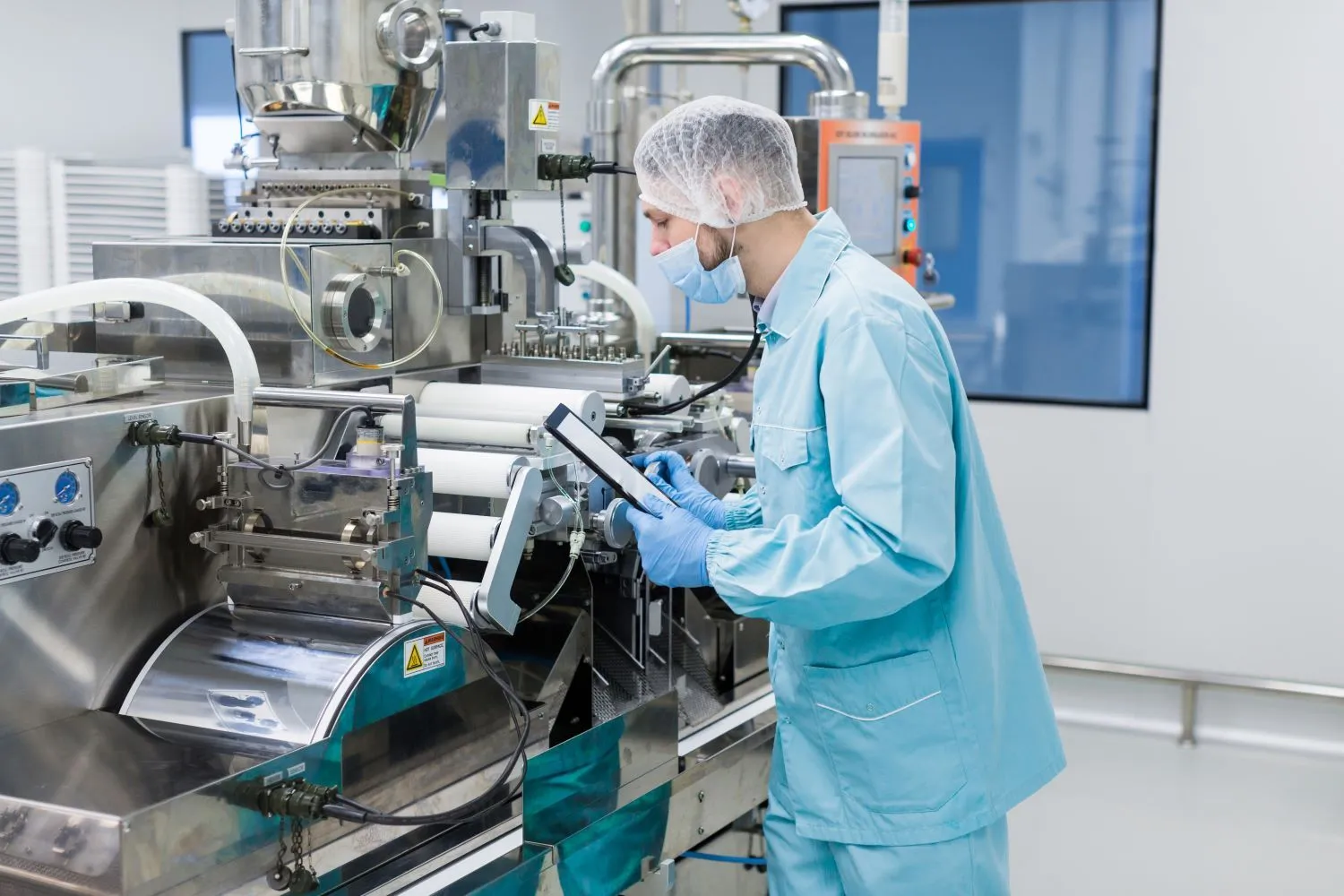Starting a Pharmaceutical Manufacturing Company in India- India is one of the world’s largest producers of pharmaceuticals, supplying over 20% of global generic medicines and meeting 50% of the global vaccine demand. With a rapidly growing healthcare sector, increasing domestic consumption, and strong export potential, starting a pharmaceutical manufacturing company in India presents a lucrative business opportunity. The country’s cost-effective production capabilities, skilled workforce, and supportive government policies make it an ideal hub for new pharma ventures.
The demand for high-quality and affordable medicines in India is rising due to population growth, increasing chronic diseases, and greater healthcare awareness. The Indian pharmaceutical market is projected to reach $130 billion by 2030, driven by domestic needs and expanding exports to the US, Europe, and Africa. Starting a pharmaceutical manufacturing company in India not only taps into this booming market but also contributes to the nation’s healthcare self-reliance while ensuring long-term profitability.

Why Pharma Manufacturing is a Profitable Business in India?
Pharmaceutical manufacturing is a highly profitable and sustainable business in India, due to the country’s strong domestic demand, cost-effective production capabilities, and growing export opportunities. The Indian pharma industry, valued at over $50 billion, is the 3rd largest globally by volume and supplies affordable medicines to more than 200 countries. With increasing healthcare spending, government incentives, and a rising burden of chronic diseases, the sector offers stable returns and long-term growth potential for entrepreneurs.
Key Benefits of Starting a Pharma Manufacturing Company in India:
- Low production costs due to affordable labor and raw material availability..
- High domestic and international demand for generic medicines and vaccines.
- Strong export potential to regulated markets like the US, EU, and Africa.
- Growing healthcare infrastructure and increasing medical needs.
- Established supply chain and manufacturing ecosystem.
- Continuous innovation and opportunities in biologics, biosimilars, and specialty drugs.
Key Steps to Start a Pharmaceutical Manufacturing Company
Starting a pharmaceutical manufacturing company in India requires careful planning, regulatory compliance, and strategic execution. The process involves multiple stages—from market research and licensing to setting up infrastructure and launching production. Given the strict quality and safety standards in the pharma industry, entrepreneurs must follow a structured approach to ensure legal compliance, operational efficiency, and long-term profitability. Below is a step-by-step guide to help you navigate this complex yet rewarding venture.
Step-by-Step Guide to Start a Pharmaceutical Manufacturing Company:
Step 1: Conduct Market Research & Business Planning
Before diving into pharmaceutical manufacturing, analyze market demand, competition, and potential customer segments. Identify whether you want to focus on generic medicines, branded formulations, APIs (Active Pharmaceutical Ingredients), or specialty drugs. Prepare a detailed business plan covering financial projections, machinery requirements, and marketing strategies to secure funding and approvals.
Step 2: Choose the Right Business Model & Product Range
Decide on your business model—contract manufacturing, own-brand production, or a hybrid approach. Select a product portfolio based on demand, feasibility, and profitability. Common starting points include tablets, capsules, syrups, injectables, or topical formulations.
Step 3: Obtain Necessary Licenses & Regulatory Approvals
Compliance with the Drugs and Cosmetics Act, 1940, and Good Manufacturing Practices (GMP) is mandatory. Key licenses include:
- Drug Manufacturing License
- WHO-GMP Certification
- Pollution Control Board Clearance
- FSSAI Registration
Step 4: Secure Funding & Investment
Estimate the initial investment, which can range from ₹5 crores to ₹50 crores, depending on scale. Explore funding options like bank loans, government subsidies (PLI scheme), or private investors.
Step 5: Set Up Manufacturing Facility & Infrastructure
Choose a strategic location near raw material suppliers and transportation hubs. Install GMP-compliant machinery, cleanrooms, and quality control labs. Ensure proper HVAC systems, water purification, and waste disposal mechanisms.
Step 6: Procure Raw Materials & Establish Supply Chain
Source high-quality APIs, excipients, and packaging materials from certified suppliers. Build relationships with reliable vendors to ensure uninterrupted production.
Step 7: Hire Skilled Workforce & Train Employees
Recruit pharmacists, chemists, quality analysts, and production staff. Conduct GMP and safety training to maintain compliance and efficiency.
Step 8: Implement Quality Control & Testing Protocols
Set up an in-house QC lab for stability testing, dissolution testing, and microbial analysis. Follow pharmacopoeial standards (IP, USP, BP) to ensure product safety.
Step 9: Launch Production & Begin Marketing
Start trial batches and obtain product approvals from regulatory bodies. Develop a distribution network through stockists, medical representatives, and online pharma platforms.
Step 10: Focus on Compliance & Continuous Improvement
Regularly audit processes, renew licenses, and stay updated with new regulations (CDSCO guidelines, global GMP norms) to sustain long-term growth.
Conclusion
Starting a pharmaceutical manufacturing company in India requires thorough planning, strict adherence to regulatory compliance, and strategic execution. For expert guidance and support, you can contact Apikas Pharma, a leading pharmaceutical manufacturing company in India, to kickstart your journey in this thriving industry.




